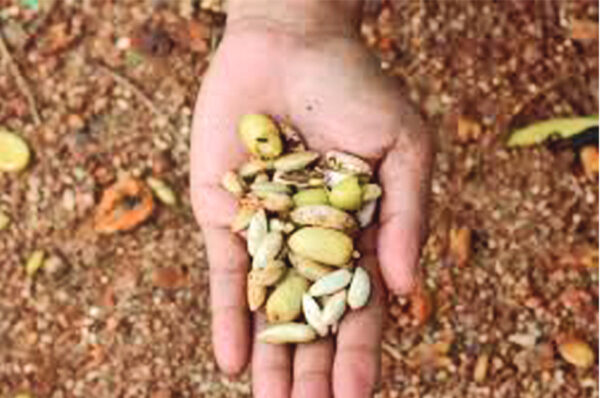
Planting image – wiki commons
Geneva Pattison
Seeing wildflowers start to fade and feeling the air begin to cool, can be a sad yearly transition for some. The end of summer is a sign of darker days ahead, colder nights and less greenery, but we can put a positive spin on this inevitable change.
Summer’s end can be seen as a gardener’s “start” to the growing season, it’s all about the seeds. Many flowers lose their petals and wilt during August, September and early October, revealing seed pods ripe for the picking.
Create a perpetual cycle of bright summer meadows year after year by saving and organising your seeds for later use. Flowers like foxgloves, love-in-a-mist, poppies and night-scented stock should be ready around this period for harvesting.
When collecting and storing seeds, see if you can allow your seed pods to dry as much as possible on the plant, with-out losing too many in the process. The drier your seeds are the better, as mould can still develop and destroy your collection, even with the slightest hint of moisture present. Keep your seeds in envelopes, or pa-per bags, label them and store them in a dark, dry cupboard for easy access next year.
A simple but ancient practice
Seed saving has been the traditional mode of maintaining gardens and farms for the last 12,000 years. This small action remains an important aspect of protecting biodiversity to this day, and is similarly important in the creation of disease-resistant plant varieties country to country.
The Irish Seed Savers Association works to champion the protection of seed varieties best suited to our mild but changeable climate in Ireland. The ISSA have a wealth of knowledge for beginners and expert advice available on their website in the “Start Growing” section of their website and also on their blog.
True Harvest Seeds in Co.Down, are a charity that work to conserve the wild flora across the entirety of Ire-land. They were the first ex-situ seed bank in the country, meaning they were the first ‘off site’ conservationists, who removed an endangered plant’s seeds from a suffering area, to re-home them else-where, protecting them from extinction.
The blog section of the True Harvest Seeds website, has a great reminder about perennial seeds. In short, now is the time to sow perennials, they may need indoor protection, but as said by True Harvest “we can take our cue from nature”. Perennials seeds are quite hardy and should be suitable for sowing till around early October, as long as there is no frost. Keep an eye on their website for interesting updates and sowing tips.
Sowing tips for next year.
When growing plants from seed, you have to consider a few variables, such as the natural growing season of a plant or the preferred growing mediums. As a basic rule, most seeds can be sown outdoors after the final frost of winter ends, around mid-April to June.
The ideal situation for seeds to germinate successfully is a warm and moist environment. However, seeds can be tricky – if overwatered when sown too early in the year they can rot.
Be sure not to drench seed-lings in starter pots.
To avoid this, try and get your hands on a smaller ‘novelty sized’ watering can for seedlings, or just any smaller vessel in general for better watering control. Reusing clean household spray bottles for watering, can be great in this instance too.
If you’re starting veg seeds or flower seeds indoors in February or March, make sure you space each starter pot out wherever they are situated in the home, for air circulation to circulate around them. Keep about three inches between the small pots, to avoid any excess moisture build up, as that can encourage mould to develop.
Using a compost with vermiculite or perlite in the mixture, will encourage root aeration in seedlings. Adding sand to your potting mix will have a similar effect and is cheaper in the long run to make your-self. It’s all about trial and error, but remember, the more you sow the more you’ll reap. Happy planting!
Visit the Irish Seed Savers Website below for further in-formation.
https://irishseedsavers.ie/about-biodiversity-conserva-tion.php
Visit the True Harvest Seeds Website below for further information.



